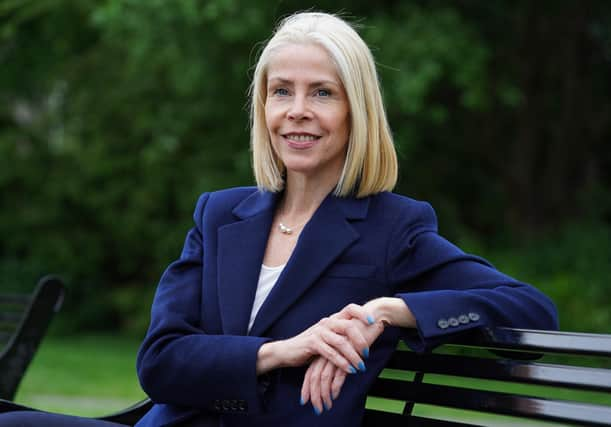Children should not be given shortbread and Irn Bru to celebrate Burns Week, warns health chief


The Chief Social Policy Adviser to the Scottish Government, Linda Bauld, said giving children sugary snacks and drinks as part of their regular diet would “undermine their chances of having a healthy diet” in later life.
Appearing on BBC Scotland’s Sunday Show, Bauld was asked about an unnamed Glasgow primary school, which had written to parents asking their permission to give shortbread and Irn Bru to children as part of their Burns Week celebrations.
Advertisement
Hide AdAdvertisement
Hide Ad“That is a problem”, said Bauld, “that kind of message to parents is a problem.
“Now people will see me saying that and think ‘Oh, Nanny wave the finger, we've been eating shortbread for hundreds of years and never did us any harm’. Well, actually, it does.
“And the problem is we've normalised it. As an occasional treat, absolutely fine. But you know, it's the old adage that you can't outrun a bad diet.
“Kids are active and moving around, but what we're giving them and what we've normalised as their diet is incredibly high in salt, sugar and fat, and fizzy drinks in particular, we don't need those in our diet.
“I know there'll be somebody from a soft drink company who will hate me saying that, but we don't. There's no nutritional value in them.
“And I think if we make that normal for kids, it's something that you eat every day, that actually we’re just undermining their chances to have a healthy diet.
“There's lots of ways to celebrate the life of Robert Burns and remember him in a national celebration that's not about fizzy drinks.”
The latest data from Public Health Scotland (PHS) suggests that Scots are roughly 40 per cent more likely to die stroke than the rest of the UK, despite the overall incidence rate for stroke in Scotland decreasing by 2.4 per cent since 2012/13.
Advertisement
Hide AdAdvertisement
Hide AdIn 2020, 3,927 Scots lost their lives due to stroke, compared with 34,518 throughout the UK. Per 100,000 thousand Scots, there were 72 stroke deaths, compared to just 51.2 per 100,000 across the whole of the UK.
According to the report’s authors, Scotland has “a high prevalence of the risk factors associated with cerebrovascular disease”, such as smoking, high blood pressure, lack of exercise and alcohol consumption “above recommended limits”.
Bauld warned that Scotland is already “paying for the health crisis”.
“We're paying for it in our health care costs,” said Bauld, “and we're paying for it as we see now in the media every day, in the hundreds of 1000s of people who are no longer in employment because they're in poor health.
“So it's costing our economy as well as costing lives. And if we don't try and shift that balance - and it’s not something that is going to happen quickly - then we are going to have a more unsustainable healthcare system that we can't afford, all the difficult conversations people are having about that, and we will struggle to pay for the public services that we all deserve.”
Comments
Want to join the conversation? Please or to comment on this article.